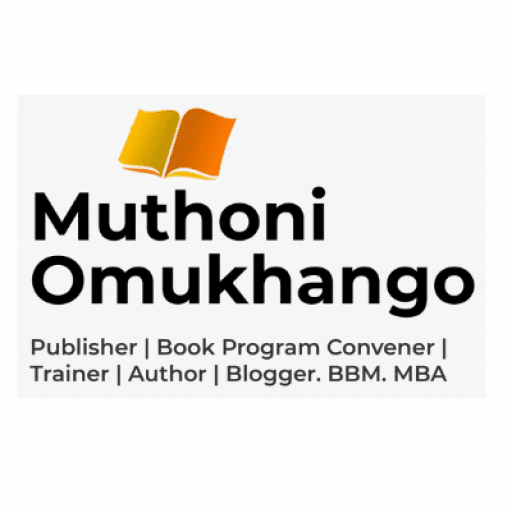Research by Paul Macharia, CLC Kenya Head of Publishing & Programs
This is perhaps one of the most talked about topics in recent years in the book industry. The advancements in technology and in culture have led many to ask the question,
“Will there be books in the future?”
This question is one that has brought fear and uncertainty for those in the book industry space. So are these fears warranted? Are we in the days of the last books? What future do books have?
A wise man once said, ‘For us to be good predictors of the future we must be careful students of history.’ When we take a brief look at the origins of books: from the Cuneiforms of the ancient world, to the Eqyptian papyrus, to the Roman codex to the Chinese invention of paper, to the famous Gutenberg printing press and the printing press we now have, two things stand out:
- Human beings have throughout the ages come with better ways of passing down information.
- Human beings have also come up with better ways of storing information.
These two lessons from history can help show us that books are not only going to be in the future but that they will also be improved to pass down knowledge, information and truth in more effective ways. So as we look to see how books progress and grow with technology and culture let us have that in mind.
Today, in the 21st century we will start with one of the ways in which books are evolving. The eBook.
What is an eBook? Excerpt written by Jordan Wahl, an editor at LearningHub G2
An eBook is a non-editable, reflowable book that is converted to a digital format to be read on any digital device such as computer screens or mobile devices.
To have a better understanding of what an eBook really is, let’s take a look at the characteristics of an eBook.
Characteristics of an eBook
For starters, eBooks are files that you can read on a digital device – a tablet, smartphone, computer, etc. But again, considering other files can be read on digital devices (i.e. word documents) eBooks have specific characteristics that differentiate them.
- eBooks shouldn’t be editable
One distinct characteristic of an eBook: the text should not be editable. An eBook should always be converted into a format that ensures it’s uneditable. With thousands of people having access to it on digital devices, people could potentially change any content without the author’s permission. So, in order to qualify as an actual eBook, text should not be able to be changed in any way, just like a paperback book.
2. eBooks are reflowable (with an exception)
This means that no matter what the size of the screen you’re viewing the eBook on, it will always fit your screen; text will remain formatted with line breaks and chapters and images resizing to fit the proportions of the device you’re reading on.
***There is one exception though: PDFs. Considering PDFs can’t be edited, but they aren’t reflowable, they technically don’t qualify as eBooks according to the characteristics that differentiate eBooks. But with businesses taking advantage of the ease of PDF downloads and distribution, PDFs have become “unofficial” eBooks and are still widely used eBook formats.’
Advantages of eBooks.
- eBooks do not have a printing cost since no physical copy is required.
- You can sell globally as there are no physical location barriers.
FAQs
What eBook platforms considered safe options for authors?
We recommend Amazon Kindle, Snapplify Kenya and eKitabu for now as we watch the development of more spaces in the future. These three are some of the secure ebook platforms because when it comes to eBooks, one of the issues to look out for is the security of your content. While it can never be 100% guaranteed, and any book can be hacked and be irresponsibly distributed, foundational security should be implemented.
Should I get a new ISBN for my eBook different from my print copy?
Not necessarily. It depends on the platform you use. Each platform will advise you on whether a new ISBN is required.
Does an author make more money in eBooks?
One, to make a significant income, one has to sell in volumes. This is why it is so:
- Suppose one has a book worth Kes 1000/= on the printed edition. One can not sell the ebook version for more than 70% (ie Kes 700/=) off the printed version price. Due to competitive pricing, most people sell the ebooks from between 30%-50%(ie Kes 300-500) off the printed version price.
- From the 70%(Kes 700), which for this example we take as the selling price for the ebook, the selling platforms 30% (ie Kes 210/=) + any withholding or similar taxes. Your take-home is 70% (ie Kes 490/=).
- If a retailer/bookseller is setting up the eBook services on your behalf, there will be additional charges depending on the retailer. CLC Kenya (for example) has a share-model of 60%-40% author-bookseller where the author takes 60% (ie Kes 294/=) of the Kes 490/= whereas CLC Kenya takes 40% (ie Kes 196/=) of the Kes 490/=.
This is why it will make more business sense when a large number of ebooks are bought.
Two, to make a great impact and sell more, authors must ensure that their books have great content. A book should be complete and easily understandable with or without an author’s presence. That’s where the world is. If you want to reach people globally, write well and clearly so someone in another part of the world far away from your home will access your books and be impacted without the need for your presence. An author’s presence should be for human connection and not for explanation of the content in the book.
Do the eBooks platforms or the booksellers market the books for more traffic or is an author’s book just listed amongst the many others?
Any book is simply listed among many others but there are promotions to participate in regularly to ensure visibility. Also in agreement with an author, CLC Kenya does accept promotional fees from these platforms to increase visibility for books to increase visibility and sales.
As we increase the CLC Kenya’s number of books/authors on the different platforms, we start to use collective bargain to benefit the books and authors in the Authors Collaboration Group. That’s one of the purposes of having a group of authors.
Does an author gain by allowing free downloads of his/her book on the eBook platforms?
There are ways for an author to benefit on free downloads of his/her book. This is discussed in the next blog post.
How does an author benefit from companies using his/her book to advertise their products?
This is a passive income for an author and is discussed in the next blog post.
Is it the future of the physical form of the book or is it the future of creativity that’s threatened?
Creativity is not becoming extinct. If it is then the future of other forms of expression such as songs, art, poems, etc are also at risk. However, due to technological advancement especially in the fast world, e-version of books will prevail. Books have become digitalized as sure as tape recorders n VCD movies were replaced by DVDS, USB, HDMI, etc.
In Africa, the physical book copy is still needed as we continue to adopt technological advancement to have more people access eBooks. One of the push towards this is the recent Corona Virus pandemic that has given e-learning a major boost in Kenya and maybe in other African countries.
There will be no end of books and the need thereof. However, the presentation will change over time and we need to adapt accordingly as authors. Right now content is king. It does not matter how it’s expressed. A book is the content you put together. How you present it to your readers is what we are calling the expression. Whether you print, offer it as electronic book (ebook) or on audio or visual, that’s up to you and your readers. The book remains your book because it’s your content. If your book is for older people in Kenya for example, many still prefer a printed copy. They love the smell of paper. So going digital might not help as much. But if you are reaching the younger generation of Kenyans, printed copy might not work very well.
There are three things that humanity cannot withdraw since discovery, money, power and knowledge. In our context as authors, the future of books is undeterred. Content relevance in your area of authority is badly needed. Forms of expressions will keep on evolving for portability and easy to make reference but books will always remain relevant.
What are the relevant apps for reading books?
This is discussed in the next blog post.








2 comments On The Future of Books – eBooks
Thank you Paul for the insights in the article.
I’ve learnt how pricing of ebooks is done when both printed & ebook versions of an author’s book exist.
It was a good read.
We are glad to be of assistance Jimmy.